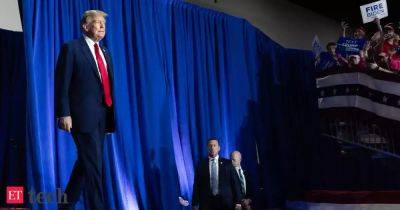How Chinese science fiction went from underground magazines to Netflix extravaganza
For a few days in October 2023, the capital of the science fiction world was Chengdu, China
CHENGDU, China — For a few days in October 2023, the capital of the science fiction world was Chengdu, China. Fans traveled from around the world as Worldcon, sci-fi’s biggest annual event, was held in the country for the first time.
It was a rare moment when Chinese and international fans could get together without worrying about the increasingly fraught politics of China’s relationship with the West or Beijing's tightening grip on expression.
For Chinese fans like Tao Bolin, an influencer who flew from the southern province of Guangdong for the event, it felt like the world finally wanted to read Chinese literature. Fans and authors mingled in a brand new Science Fiction Museum, designed by the prestigious Zaha Hadid Architects in the shape of a huge steel starburst over a lake.
But three months later, much of that goodwill turned sour as a scandal erupted over allegations that organizers of the Hugo awards — sci-fi’s biggest prize, awarded at Worldcon — disqualified candidates to placate Chinese censors.
The event embodied the contradictions that Chinese science fiction has faced for decades. In 40 years, it’s gone from a politically suspect niche to one of China’s most successful cultural exports, with author Liu Cixin gaining an international following that includes fans like Barack Obama and Mark Zuckerberg. But it’s had to overcome obstacles created by geopolitics for just as long.
With a big-budget Netflix adaptation of his “The Three-Body Problem” set to drop in March, produced by the same showrunners as “Game of Thrones,” Chinese sci-fi could reach its biggest audience yet.
Getting there took decades of work by
Read more on abcnews.go.com






















